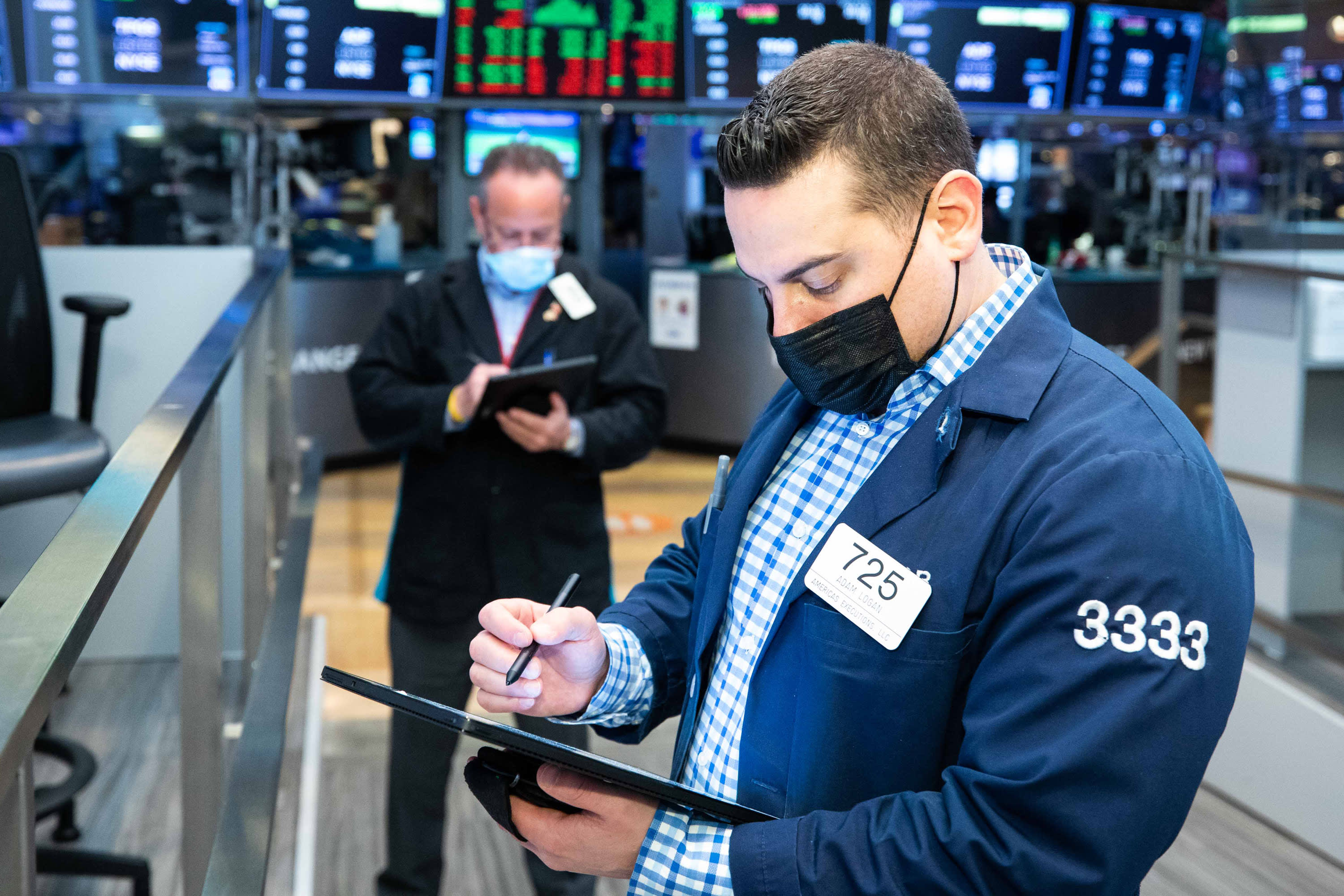Dow slips 100 points from a record high, Boeing leads losses

U.S. stocks fell slightly from record levels on Monday as muted trading resumed before the first-quarter earnings season and the release of widely-watched inflation data.
The Dow Jones Industrial Average slipped 100 points from a closing high hit in the previous session. Boeing was the biggest decliner in the blue-chip Dow, falling 1.8%. The S&P 500 dipped 0.3%, while the Nasdaq Composite fell 0.7%.
Reopening plays led losses with shares of Carnival and Norwegian Cruise Line off about 5% each. United Airlines fell about 4% after the carrier said its first-quarter revenue is expected to fall 66% compared with the same period in 2019. The new guidance fells near the top of the range between 65% and 70% that the company had previously forecast.
Shares of Nuance Communications jumped 18% after Microsoft announced it will buy the speech recognition company in a $16 billion deal. The Nuance acquisition represents Microsoft’s largest acquisition since it bought LinkedIn for more than $26 billion in 2016.
Tesla gained more than 3% to around $700 after Canaccord Genuity upgraded the stock to buy and raised its price target to $1,071, citing its battery innovations.
The first-quarter earnings reporting season begins this week, with expectations set for broadly positive news and an uptrend for U.S. equities thanks to a recovering economy. Many of the nation’s largest banks, including Goldman Sachs and JPMorgan Chase will this week report results for the three months ended March 31.
This week is also packed with Federal Reserve speeches and key economic data including a hotly anticipated inflation reading Tuesday, when the U.S. consumer price index is released.
The central bank’s chairman, Jerome Powell, kicked off the week of multiple Fed appearances with an interview that aired Sunday evening on CBS News’ “60 Minutes.”
During the interview, Powell reiterated that the Fed wants to see inflation rise above its 2% for an extended period before officials move to raise interest rates.
“We want to see inflation move up to 2% — and we mean that on a sustainable basis, we don’t mean just tap the base once,” he said. “But then we’d also like to see it on track to move moderately above 2% for some time.”
He added that amid an accelerated Covid-19 vaccine rollout and strong fiscal support, the U.S. economy appears to be at a turning point. “What we’re seeing now is really an economy that seems to be at an inflection point,” he said.
Powell will also speak Wednesday at an Economic Club of Washington event.
Investors will also keep an eye on President Joe Biden’s effort to advance a major infrastructure proposal known as the American Jobs Plan. Biden, who with other Democrats promised significant an infrastructure overhaul in the 2020 elections, will meet with a bipartisan group of lawmakers on Monday to try to persuade Capitol Hill to back the $2 trillion package.
Congress will return to Washington this week and be in session for the first time since Biden debuted his proposal, which earmarks hundreds of billions of dollars for roads, bridges, airports, broadband, electric vehicles, housing and job training.
“A positive fiscal shock, strong housing tailwinds, a large stock of savings, and the Fed letting inflation run above 2% mark a fundamentally different economic backdrop,” Evercore ISI equity strategist Dennis DeBusschere wrote in an email. “US data is expected to be strong this week and US vaccinations are increasing. Real rates are still too negative and are headed higher, supporting risk-on factor outperformance.”
The president’s plan would also increase the corporate tax rate to 28% and crack down on other overseas tax avoidance strategies.
Enjoyed this article?
For exclusive stock picks, investment ideas and CNBC global livestream
Sign up for CNBC Pro
Start your free trial now




